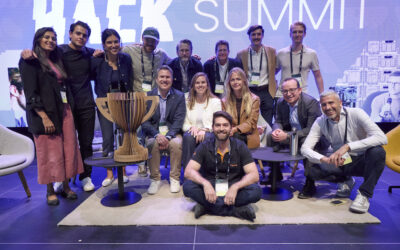Side stream valorisation focuses on...
SFNV’s new Steering Committee Chair Marie-France Tschudin on encouraging collaboration for a better food system
SFNV’s new Steering Committee Chair Marie-France Tschudin on encouraging collaboration for a better food system

Collaboration is crucial to allow food system innovation to flourish in Switzerland and beyond, according to Marie-France Tschudin, who was elected as Swiss Food & Nutrition Valley’s new Steering Committee Chair in May this year. Marie-France, former President of Innovative Medicines International and Chief Commercial Officer of Novartis, has 30 years of multinational experience in the pharmaceutical and biotechnology industries and is passionate about shaping a more sustainable future through food. We recently caught up with her to discuss her vision for the Valley and her views on Switzerland’s role in shaping a future-proof food system.
Marie-France, once again: welcome to the Valley! Could you tell us a bit about what motivated you to join us on our journey?
Having spent 30 years in healthcare, I firmly believe that food and good nutrition can help us prevent the onset of chronic diseases. But our food system is in constant flux. Despite growing innovation and knowledge about what we can do to keep ourselves and the planet healthy, our food system ecosystem is fragmented which can make achieving meaningful change more complex.
I’m impressed by how Swiss Food & Nutrition Valley unites stakeholders from across the food ecosystem to work together. Thanks to its dedicated team and network of partners, the Valley encourages and nurtures change and innovation in Switzerland. Through collaborative action, we accelerate our progress towards a more sustainable food system — and then support others in doing the same.
What is your vision for the future of Swiss Food & Nutrition Valley?
The complex challenges related to our current food system include malnutrition, food waste, threats to farmers’ livelihoods, and environmental concerns such as soil degradation, to name just a few. And we will likely face additional challenges in the future.
I believe that we already have the technology, the knowledge and solutions to address many of these issues. Our biggest challenge is making sure we can implement them at scale. To do this, we need to take a systems approach, whereby all parties in the food system have a role to play to serve a collective, greater common purpose or objective.
By fostering a network where innovation is supported and concrete solutions can become scalable, Swiss Food & Nutrition Valley can help strengthen Switzerland’s position as a food innovation nation.
What do you mean by “food innovation nation”?
As one of the most competitive countries in the world, Switzerland offers the right conditions and environment for innovation, including in the food industry. We need to continue to nurture that environment so that “Made in Switzerland” science, technology and state-of-the-art innovation targeting a better food system can flourish and be leveraged across the globe.
How do you plan to strengthen the Valley’s impact?
I believe that effective collaboration within the ecosystem is vital to driving change and achieving measurable results. I’ll be actively engaging with our partners to learn and understand their most pressing issues and to create and support opportunities for collaboration. I’ll also be supporting the Valley’s team to create the right forums to showcase our partners’ impact and innovations.
What does sustainable food mean to you personally?
Food is always at the heart of our lives. It influences how we feel, who we interact with and how we interact with them. Through food, we can share our diversity, create memories, and celebrate and care for each other and our world.
To me, sustainable food is nutritious and supports local economies as well as the wellbeing of the planet. Sustainable food will look different depending on where you are in the world, but essentially, it is about fostering a healthy, varied diet while minimising waste.
Is there a message you’d like to share with the Valley community?
Change is always challenging but necessary if we want a more robust, future-proof food system. Of course, change isn’t going to happen overnight. But our long term commitments to creating this future are something we can feel proud of every day, with every step we take.
Never miss a Swiss food innovation morsel.
Latest News
5 questions on side stream valorisation for Rethink Resource CEO Linda Grieder Kern
5 questions on turning side streams into delicious products for Luya co-founder Flavio Hagenbuch
More and more people are reducing...
Givaudan, Nestlé R+D Accelerator Lausanne and FoodHack launch the 2025 FoodTech World Cup
The future of food is personalised,...
Five questions for StreamUp Project Lead Tatjana Nebel about supporting Swiss food loss reduction solutions
Food losses can occur at any stage of...








